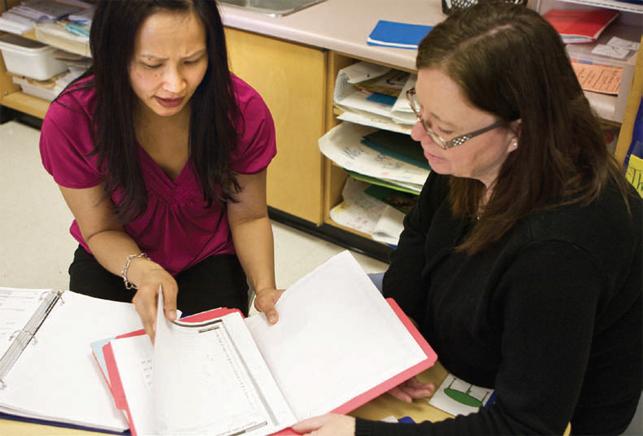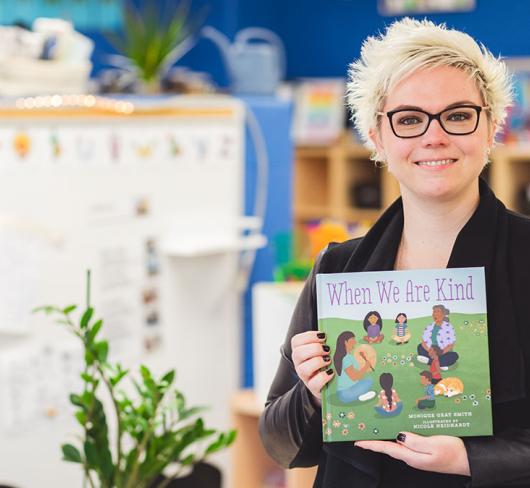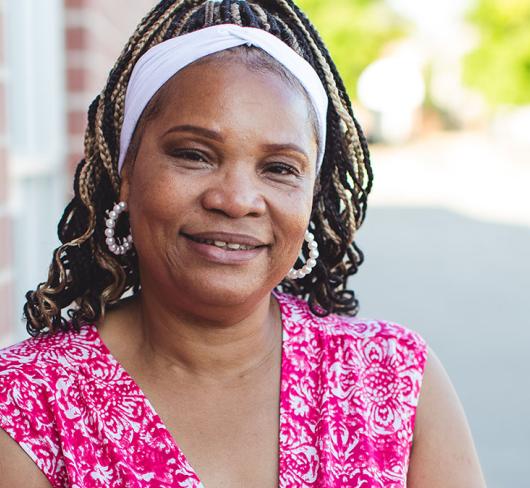
Working With Early Childhood Educators: A New Partnership for Teachers
Ontario is embarking on a bold new early learning program, one that will see teachers and early childhood educators (ECEs) working together in the classroom. It’s a plan that will benefit children.
After hearing from Charles Pascal, the premier’s early learning advisor, the government decided that the program would be staffed by teacher/ECE teams. These kinds of early learning teams are not entirely new to Ontario kindergarten classrooms. However, system wide expansion of this model means many of those involved will face new challenges.
UNDERSTANDING HOW YOUNG CHILDREN LEARN
It is now widely understood that learning begins at birth and life is the young child’s classroom. A child’s earliest experiences lay the foundation for knowledge acquisition and set trajectories for health and behaviour.1 The growing science of early human development underscores the importance of learning through play.
This is the kind of learning environment that forms the basis of ECE training. Throughout their education ECEs focus on creating environments that capitalize on young children’s natural curiosity to explore and discover themselves and the people and communities around them. Effective early childhood programs provide children with play-based opportunities that contribute to their self-confidence and a positive attitude toward learning.
For some years now kindergarten teachers pursuing best practices have understood the importance of play-based learning.2 ETFO continues to provide resources and learning opportunities to support them. The complementary skill sets of the two professions will enable the teacher and the ECE to create a learning environment that supports the holistic development of young children.
APPROACHES TO CURRICULUM DEVELOPMENT
In the training ECEs receive, children are viewed as independent agents who can have an active role in shaping their learning. ECEs are trained to enrich and extend learning opportunities, based on their knowledge of child development, observations, and documentation of the child’s activities. This skill set complements that of teachers. ECEs are also trained to work with the child’s family and the broader community.
Often termed “social pedagogy,” this approach appreciates that younger children learn differently from older children. Social and emotional connections with other children and adults are critical to giving young children a sense of security, a secure attachment that helps them become successful learners.
Social pedagogy stands in contrast to the academic approach to early learning favoured by some administrators and boards.3 The academic approach tends to emphasize detailed goals and outcomes that influence curriculum decisions about what and how children learn. The focus is on academic skills. Learning expectations are related to school readiness tasks and skills, in preparation for entry into grade 1. (The new program will be supported by the ELECT, Early Learning for Every Child Today, document, which maintains the same expectations in place previously but changes the approach to one based on a recognition of children’s development, readiness to learn, and learning through play.4)
The skills teachers bring to the development of curriculum complement those of ECEs. Teachers’ knowledge of and experience with curriculum requirements, lesson planning, observation, and assessment help provide structure, coherence, and focus to the play-based program. Teachers also bring experience and knowledge of what children need in grade 1 and beyond.
WORKING WITH PARENTS
A partnership with parents is an important focus of ECE training. Parents are considered essential partners in their children’s learning. Their insights into their own children inform programming and parents are encouraged to extend learning opportunities into the home. Meeting parents at the start and end of every day gives ECEs extended opportunities to have conversations with them about their children. This is particularly important if parents are struggling with life circumstances or perhaps are new to Canada.
At its best the relationship between parents and ECEs enhances a sense of trust and belonging for the child and the family. In small, community-based, nonprofit early learning centres parents often play a role in governance, which enhances their sense of involvement and belonging. By contrast, the school system is much larger and more complex; however, effective schools also work hard to engage parents and the community. To cite just one example, parental and community engagement is an important focus of the Toronto District School Board’s Model Inner City Schools program (described in the June 2007 issue of Voice5). Involving parents in their children’s education is a recent Ministry of Education priority. Ministry policy requires that all school boards have parent involvement committees and the ministry has created a special division devoted to fostering parental engagement.
PROFESSIONAL REQUIREMENTS
Like teachers, ECEs are now regulated by a professional college. The 2007 Early Childhood Educators Act established the College of Early Childhood Educators, which now governs 25,000 registered educators.
Ontario’s community colleges offer a two year ECE diploma. The curriculum combines theory with field experience in a variety of settings, including licensed child care centres, school classrooms, and early identification and family resource programs that serve children ages six weeks to 12 years and their families. Students complete course work in early childhood development, observation and planning, early identification and intervention, health and safety, curriculum development, policy development, working with families, and understanding their diverse and complex experiences.
Teachers’ academic education is complemented by time spent observing and learning in classrooms. Once on the job, new teachers have access to a mentoring program and the wisdom and knowledge of experienced colleagues. Teachers prepare an annual learning plan, as members of ETFO and as school board employees, they have access to a broad range of professional learning opportunities.
SUPPORTING NEW PARTNERSHIPS
Teacher/ECE teams in kindergarten classrooms will need considerable professional support to make the program work. They will need time for joint planning, curriculum preparation, and professional learning. These opportunities will have to be provided within the context of the collective agreement rights of teachers and ECEs. (Some of the challenges of meeting teachers’ collective agreement requirements are detailed in Christine Brown’s column on page 35.)
Many of the tools to support the early learning team are in development. New legislation supports a teaching partnership that assigns the teacher primary responsibility for the program but respects the knowledge and skills of both professions. The newly released curriculum reflects best practice from both the Kindergarten Program, 2006 and the ELECT documents. Joint training for teachers and ECEs has begun.
Teachers and early childhood educators have much in common, most of all their commitment to the well-being and development of young children. They have much to learn from each other and much to give their young charges. The success of the Early Learning Program depends on their willingness to work in new ways, to learn from each other, and to be prepared to grow daily alongside their young learners.
Notes:
1 J. Shonkoff and D. Phillips,eds., From Neurons to Neighborhoods: The Science of Early Childhood Development, Committee on Integrating the Science of Early Childhood Development (Washington, DC: National Academy Press, 2000).
2 This has not always been supported at the school or school board level, as a data- driven agenda resulted in a more didactic approach to instruction. ETFO continues to provide resources and learning opportunities to support teachers in planning play- based learning.
3 John Bennett, “Curriculum Issues in National Policy-Making,” European Early Childhood Education Research Journal 13:2, pp. 5-23. Bennett’s review of national curriculum policy frameworks provides an excellent discussion of social pedagogy and the “pre-primary” method commonly used in Anglo-American countries.
4 Ontario, Ministry of Children and Youth Services, “Early Learning for Every Child Today” provides the framework for a play-based program.

